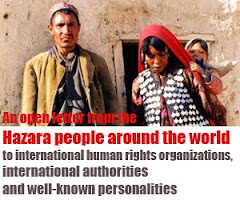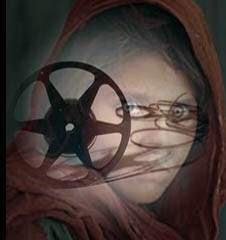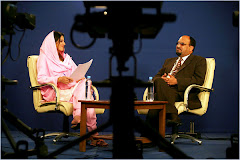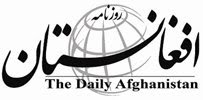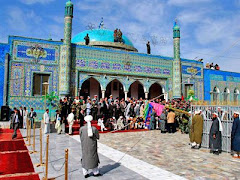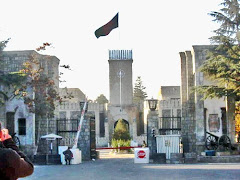
Blogger’s note: It is an interesting news and especially important for Afghanistan because Canada is one of the countries involved in the reconstruction of Afghanistan and the documents were related to Afghanistan.
The Canadian Foreign Minister Maxime Bernier, resigns after forgetting some classified and important documents of NATO Summit in Romania about Afghanistan in April this year, in his ex girlfriend’s house. It is interesting from two aspects; One, how carelessly the issues of Afghanistan is dealt with, like a worthless time pass; documents are not important to be kept safe and after one month it reveals that this mistake is made, that is why the progress in Afghanistan is not taking place the way it should be, therefore it seems that the countries of international community involved in Afghanistan are not serious in their mission and do not care about the progress of Afghanistan.

Two, taking responsibility and acceptance of mistakes is good and when someone makes a mistake, some how apologies to compensate it, this way the minister apologized for his mistake, which just needs a conscience and courage to do it.

If in countries like Afghanistan, this conscience and courage exists among the governmental officials and if they accept their mistakes and some how compensate them, every thing will be fine and the country will move forward in a better way.
Toronto: The Canadian foreign minister who resigned this week for a security breach had left classified documents about a NATO summit at the home of his ex-girlfriend, the government said Tuesday
But Prime Minister Stephen Harper said it appeared that no confidential information had gotten out.
The foreign minister, Maxime Bernier, resigned Monday after leaving the documents at the home of Julie Couillard, who has generated controversy for past ties to members of the Hells Angels motorcycle gang. Harper called Bernier's security breach a "serious error."
Conservative lawmaker Peter Van Loan said Tuesday that the documents were a mix of classified and public documents relating to the April NATO summit in Romania where Canada sought reinforcements for troops in Afghanistan.
"Thus far we have no information that would suggest that any secrets have been revealed," Harper said in Paris. He said the incident would be reviewed.
Bernier wrote in his letter of resignation that he learned Sunday night that he had left behind classified documents at a private residence.
"Prime Minister, the security breach that occurred was my fault and my fault alone and I take full responsibility for my actions," Bernier wrote.
Couillard said she contacted a lawyer five weeks after he left the documents at her home in April. Couillard's lawyer returned them to the government on Sunday.
In an interview broadcast Monday, she denied ever reading the documents, saying "it was definitely not for my eyes."
"I was panicked by the fact that I had that at my house," Couillard said.
Opposition parties demanded that the government explain how it took them five weeks to realize the classified documents were missing. Opposition Liberal Leader Stephane Dion said Harper showed "appalling lack of judgment" for dismissing security concerns over Bernier's involvement with a woman with past ties to gang members, and called for a public inquiry.
But Harper said that Bernier's resignation has put an end to the matter.
"As we've said, private lives are private lives and the government of Canada does not intend to get into the business of investigating private citizens," Harper said. "This has nothing to do with Madame Couillard. This was the unfortunate error, the unfortunate actions of the minister that are at issue here."
Bernier first drew the attention of Canadians when he appeared at his swearing-in ceremony in August with the provocatively dressed Couillard on his arm. Her former links to Hells Angels did not become public until recently.
Harper said Monday that David Emerson, the international trade minister, will take over as interim foreign minister. ( from International Herald Tribune)
Click here to see the original post:
Click here to read in telegraph
































